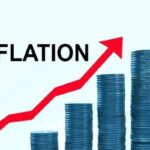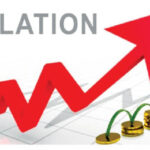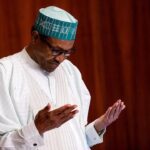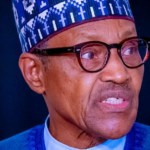President Muhammadu Buhari has said the challenge of foreign exchange arbitrage (multiple forex markets) will have to be confronted frontally to encourage investments.
The president spoke on Monday in Abuja while declaring open the 28th edition of the Nigerian Economic Summit. He was represented by Vice President Yemi Osinbajo.
Buhari transmits constitution alteration bill, others to reps
Delta 2022: Gombe Bulls determined to retain gold medal
Speaking on the theme of the summit, “2023 & Beyond: Priorities for Shared Prosperity,” the presidential address focused on key issues to drive growth and prosperity, including the National Development Plan 2021 – 2025, and the impact of the Economic Sustainability Plan, among others.
The president noted that Nigeria’s current exchange rate is a cause for concern and we must manage the situation. He said the supply side must be improved and the demand managed as well adding that we have a mechanism for managing both transparently.
He said, “The discussion that we must have, shorn of sentiments, is how best to manage the situation by finding a mechanism for increasing supply and moderating demand, which will be transparent and will boost confidence.”
The president also emphasised the need for urgent action to reduce inflation, noting that inflation is both a tax on the poor and disrupts long term growth.
“We would need to increase domestic production of food and ensure that it gets to the market” to rein in inflation, noted the president.
Also speaking, the Minister of Finance, Budget and National Planning, Zainab Shamsuna Ahmad, said the consistent growth in Nigeria’s Gross Domestic Product (GDP) has not had a positive impact on the lives of its citizens with growing inflation due to soaring food inflation that has outshined the seventh quarterly growth in the economy.
“We constantly say we have witnessed seven consecutive quarters of growth, it is true, but the growth has not permeated to the citizens as they are still buying food at high prices from the market so we need to look at how we can reduce the high cost of food prices,” she noted.
Zainab also disclosed that the Federal Inland Revenue Service (FIRS) generated N10 trillion so far in September, adding that the government is targeting N12tr from the service for 2022.
Speaking as a panelist, the Founder of Standard IBTC Bank, Atedo Peterside said connivance between government and criminals has cost the Nigerian economy a lot as evidenced in the crude oil theft.
While calling on the government to stop oil subsidies, he said there is a need to stop the two foreign exchange rates, which is favouring those who have connections with the government.
On his part, Chairman of the Nigeria Economic Summit Group (NESG), Mr Asue Ighodalo, said for Nigeria to build a resilient economy, it must grow its GDP to $9tr within the next 25 years.
He said “We must succeed in transforming the economy within a time frame in our agenda 2050, which has a time frame of 25 years.
“Also, we will need to grow our GDP between $4.5tr to $9tr in the next 25 years, as such we need to build an economy of growing at about 15 per cent or more,” he said.
By Chris Agabi, Faruk Shuaibu & Philip Shimnom Clement

 Join Daily Trust WhatsApp Community For Quick Access To News and Happenings Around You.
Join Daily Trust WhatsApp Community For Quick Access To News and Happenings Around You.


